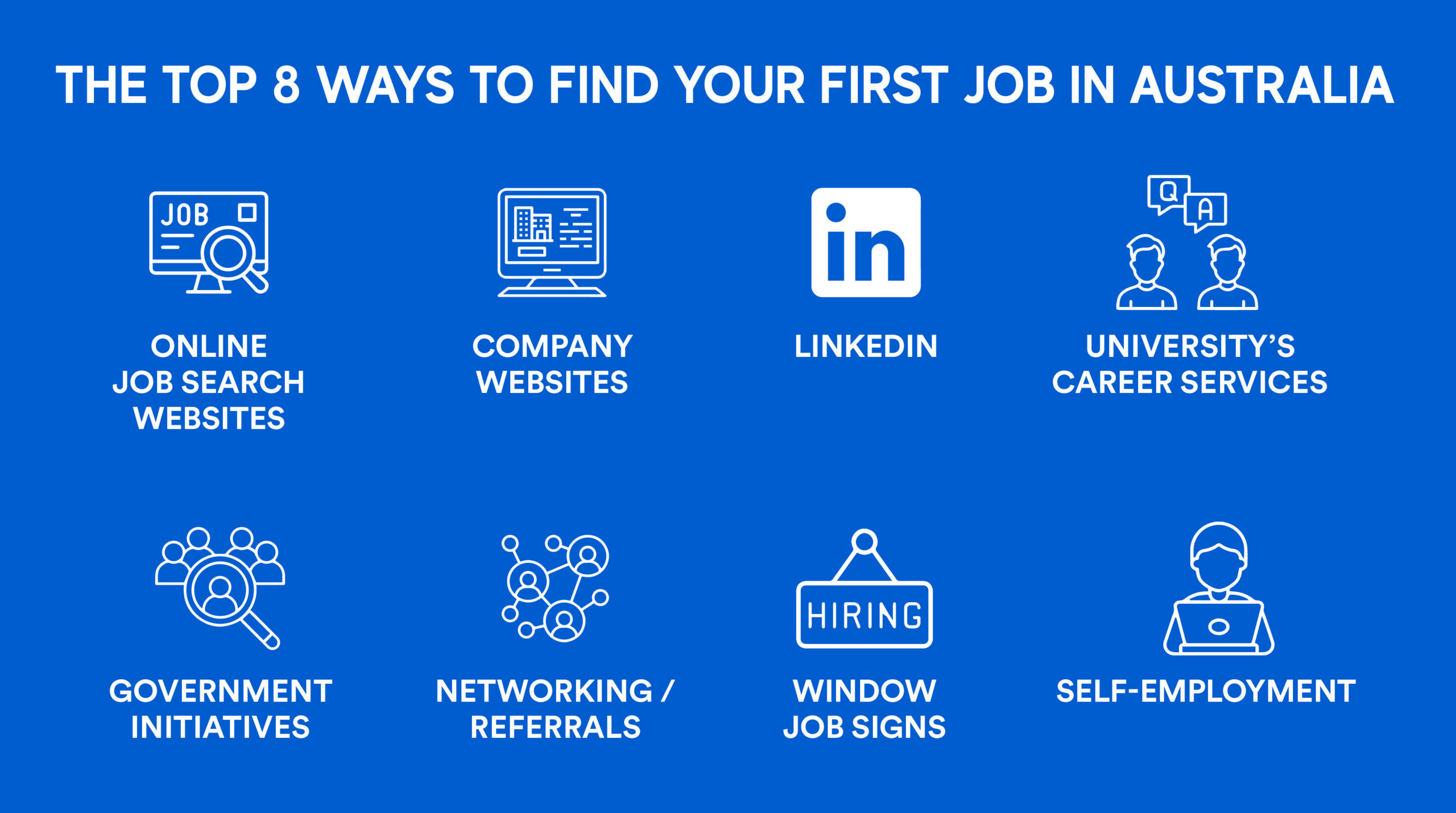
Are you a university student looking to secure your first casual or part-time role? There are many ways today to find your first job in Australia. Here’s the top 8 ways as well as careers advice to help you secure your first role.

1. Online job search websites
Start your search with online job search websites as they will have the most extensive list of job vacancies. Look at Seek, Indeed, Jora and CareerOne.
Use job titles, keywords and filters to narrow down your search results. Create a profile to set up job alerts (i.e. be notified of new jobs matching your search criteria) and store your resume for future applications.
For job search websites tailored to students, look at Student Job Board and Student Edge.
2. Company websites
You may already have a list of companies you would like to work for. Go to their website and see if they have a ‘Jobs’ or ‘Careers’ section. Even if the company does not currently have any suitable jobs, create a profile with them (if possible) or email them to register your interest for upcoming roles and attach your resume.
3. LinkedIn
LinkedIn is not just for graduates or people who have years of experience, it is a social platform for university students too.
LinkedIn have job listings you can apply for and many employers search for potential employees by looking at their LinkedIn profile and resume. They can send messages to you about job vacancies.
Create a profile, upload your resume, and list your qualifications and skills. You can post your achievements during your studies to help you get noticed and join social groups that could lead to job opportunities.
4. University’s Career Services
Your university may have a Careers Service that you can access to receive career planning and skill development, opportunities for work placements and internships and industry connection.
5. Government initiatives
In each state, there are government initiatives that help students find work. For example, In Adelaide, the StudyAdelaide Job Shop is a platform that is dedicated to connecting businesses with students looking for their first job in Adelaide. In Melbourne, StudyMelbourne’s Career Catalyst is an employability program designed to help international students develop professional skills and connect with employers.
In Perth, there is JobFinder WA and in New South Wales, the NSWJobsConnect lists thousands of job ads.
6. Networking / referrals
Many jobs are not advertised but filled through networking and referrals. Let your friends, family and previous colleagues know that you’re looking for a job. They may know about vacancies not listed online (e.g. at their work).
If there is a company you would like to work for, see if they have events that you could volunteer at. You may learn of job opportunities through their employees.
7. Window job signs
Many businesses, especially in food and retail, post signs on their windows looking for staff. If you’re interested, enquire in store and leave your resume with the manager.
8. Self-employment
Instead of working for another company, you could work for yourself. For example, you can become a tutor and teach a language or maths via Learnmate or freelance your skills via sites such as Airtasker, Fiverr, Freelancer and Upwork.

Careers Advice
Here’s three important things to know while you’re conducting your job search.
1. Tailor your cover letter and resume to the job
For each job application, you usually need to write a cover letter and a resume.
A cover letter is a way to introduce yourself and show the value you could bring to the role you’re applying for. Your resume summarises your education, work experience, skills and achievements. Remember to include any casual roles you had in high school and extracurricular activities you were involved in (e.g. volunteering, running events).
For each job application, tailor your cover letter and resume to the job description, explaining how your skills fulfil their job requirements.
You can use a cover letter and resume template to help you start.
Don’t worry if you don’t have a lot of relevant work experience. For entry- level roles, employers are more focused on soft skills (e.g. teamwork, willingness to learn). You can use these skills as an example of how you will bring value to their company.
2. Practise your interview techniques
Practise your interview skills to help you feel more confident and increase your chances of securing the role. To prepare for your interview:
- Research the company and familiarise yourself with their products and services
- Practise answering common interview questions. You need to be able to talk about your past work experience and strengths in a clear and concise way.
- Practise engagement – eye contact, active listening and good posture.
- Think of questions to ask the employer as this shows them your interest in the role and company.
Read more on how to prepare for an interview.
3. Know your rights
International students can work up to 48 hours per fortnight during the semester and unlimited hours during the term break. Although working brings benefits, this doesn’t mean you should work the maximum amount. During the semester, you need to allocate time for lectures, assignments, social activities and rest. Consider these things before committing to too many work shifts.
While you’re working, it is important you feel comfortable and safe at your workplace, paid the right wage and given the right benefits. Visit the Fair Work Australia website for more information.
Interested in more job advice? Discover the 5 top students jobs in Adelaide. At the University of Adelaide College, our College Services team are here to help you settle into the College and offer you any academic or career guidance you may need.

